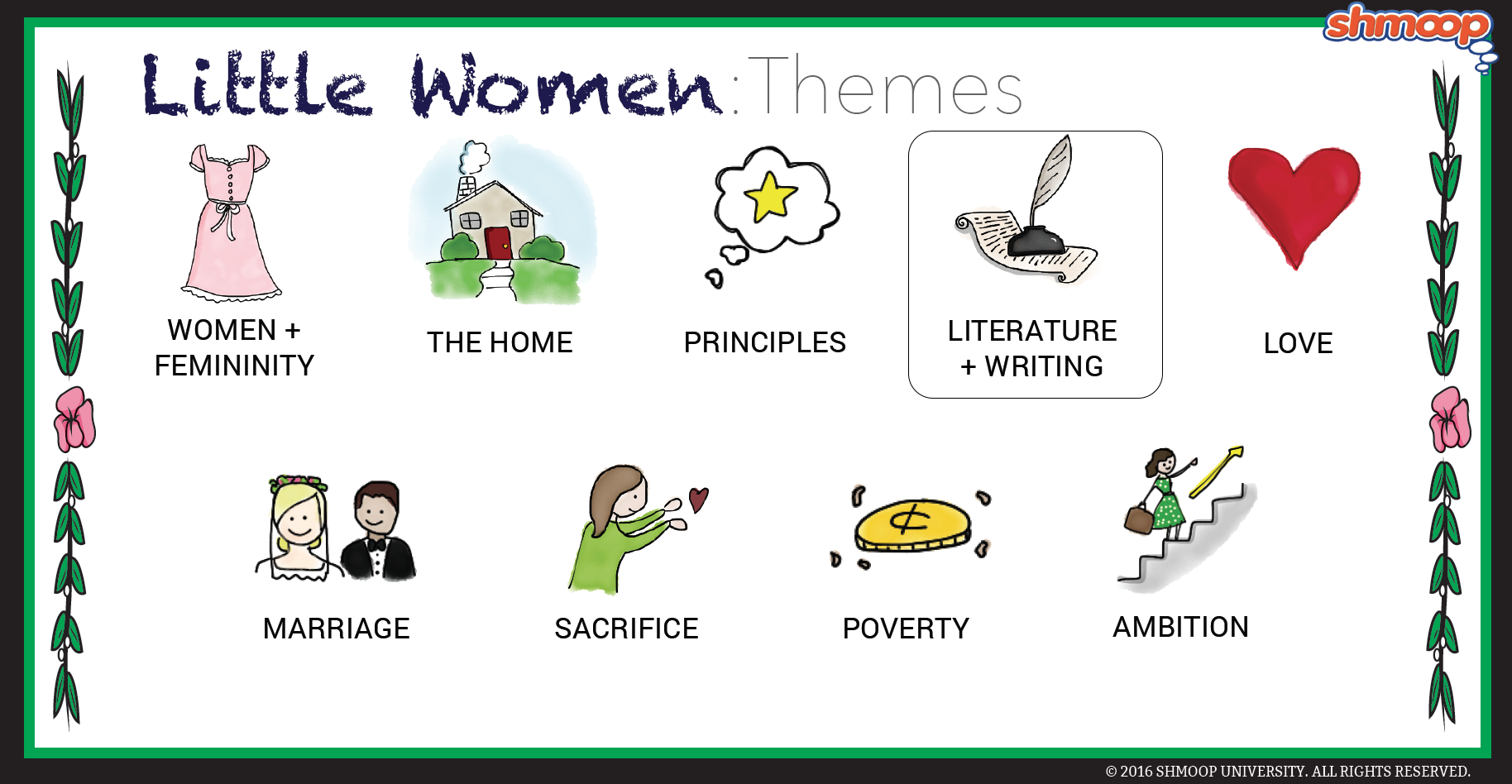 (Click the themes infographic to download.)
(Click the themes infographic to download.)
Little Women is a text about writing texts. The protagonist, herself an author, experiments with different genres and voices in order to find her own "truth" as a writer. Literature also provides inspiration, not only for childhood games, but also for adult lessons. Shakespeare is a particular touchstone for these characters, exemplifying both writerly talent and development of characters. The German Romantic poets and the American Transcendentalists are also sources of wisdom and interest, uniting Romantic ideas with social ideals. However, writing can also be dangerous in this novel; sensational or thrilling fiction divorces entertainment from ethics, and writing or reading texts of that kind can harm someone's character.
Questions About Literature and Writing
- What kinds of books do Jo and her sisters enjoy reading? How do they transform their reading experiences and take them off the page and into the world? (Hint: consider the Pilgrim's Progress game, the Pickwick Club, and the girls' morning Bible-reading ritual.)
- What types of stories, novels, and plays does Jo write? How do you think she would react to the advice commonly given to young writers to "write what you know"?
- Beth views her sister Jo as a fantastic writer, just as good as Shakespeare. What does Beth's hyperbolic praise really tell us about Jo? About Beth?
- Why do Mr. Bhaer and Mr. March disapprove of some of Jo's early attempts as a writer? What do they think she should do differently?
Chew on This
In order to find her own voice as a writer, Jo must write stories that are realistic, instead of sensational or moralistic.
Jo's temptation to write sensational, thrilling stories in order to make money is one of the major moral challenges she must face.